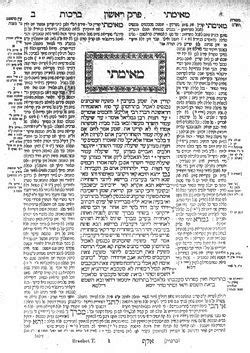
God commands in Exodus that the priests must wash their hands and their feet before entering the tent of meeting to eat the holy food. Exodus 30:18 The Mishnah and Talmud extend this to everyone that would lead a holy life, and to washing after a meal as well. A modern exposition of Talmudic reasoning says:
A certain spiritual peril lurks in any meal that we eat. Our involvement in gastronomic pleasures inevitably increases the value we assign to such activities, and decreases the importance of spiritual activities, efforts that truly perfect us. As a preventative measure, the Sages decreed that we should wash our hands before eating. Performing his ritual impresses upon us the imagery that we are like the priests, eating holy bread baked from terumah offerings. The physical meal we are about to partake suddenly takes on a spiritual dimension.The "salt of Sodom" is metaphorical. Ezekiel said: "Behold, this was the guilt of your sister Sodom: she and her daughters had pride, excess of food, and prosperous ease, but did not aid the poor and needy." Ezekiel 16:49Despite this preparation, our involvement in the physical act of eating will reduce our sense of holiness to some degree. To counteract this negative influence, we wash our hands after the meal. With this ritual cleansing, we wash away the salt of Sodom, the residue of selfish preoccupation in sensual pleasures. This dangerous salt, which can blind our eyes to the needs of others, is rendered harmless through the purifying ritual of mayim acharonim.
"Draw near to God, and He will draw near to you. Cleanse your hands, you sinners, and purify your hearts, you double-minded." James 4:8
"Yet the righteous will hold to his way, and the one with clean hands will grow stronger." Job 17:9
"Since you have purified your souls by obedience to the truth so that you have a genuine love for your brothers, love one another deeply, from a pure heart." 1 Peter 1:22
"We know that when Christ appears, we will be like Him, for we will see Him as He is. And everyone who has this hope in Him purifies himself, just as Christ is pure." 1 John 3:2b-3